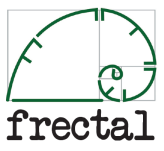Healthcare: the “right thing to do” challenge.
If clinical audit is aimed at ensuring clinicians are “doing things right” then healthcare research aims at searching for the “right thing to do”.
Academic Medicine has always been highly regarded within the medical profession and been instrumental in changing the lives of many many people. You may recall the story behind the research into the cholera outbreaks across districts of London by Dr John Snow in 1854. The secret of that breakthrough was by uncovering the right information that provided the “evidence” that there was a very strong link with a local water pump. This evidence helped break the cycle of cholera at the time and began the science of epidemiology.
Internationally, healthcare has of course developed at significant speed over the last decades. The rate of medical discovery is already outstripping our ability to keep up and provide Evidence Based Medicine at the point of care. In modern times, after much progress in medical research there now exists an important disconnect between medical research and information management at the frontline. This gap from “Bench to Bedside” is the target of Translational Medicine and Knowledge Translation attempts to “Bridge the Chasm”.
There also remains many unanswered healthcare questions that need to be tackled, particularly as we get into discussions about value for money in public services such as healthcare… we need to be increasingly certain that we are guiding clinicians based on the best available evidence, which will always raise related research questions
At the frontline, clinical care is paramount of course, it requires the support of Evidence Based Medicine in real time and given the right information and knowledge management systems, there could/should be increasing support for important clinical research as a by-product of routine clinical care.
Yes healthcare research is hard to do at the frontline, esp. in the midst of the complexity of busy departments and complicated patient care. We have talked about clinical audit, which often begins with a retrospective look at clinical practice aiming to improve. The challenge of tackling prospective clinical research questions at the clinical coalface is an order of magnitude more complex again..
From my experience, one of the key current challenges of supporting and participating in a clinical trial in an acute clinical setting comes down to the current paper based approach to both clinical documentation and research. .
When you are in the midst of a busy clinical shift in an ED, under pressure for time, you may not be surprised to learn that recruitment to clinical research trials can be challenging.
While difficult to do, the important role of research in healthcare today is recognised. My own view is that in order to greater align the pressurised clinical frontline delivery agenda with the academic research agenda, we must forge a much better union between clinical frontline and the academic research information and knowledge systems. Indeed if healthcare information systems could better support clinicians at the frontline and harvest the information needed for a clinical trial as a by-product of that process, that would revolutionise the research burden.
In that way, I should be able to manage my patients care as needed and interwoven within the clinical encounter and with the patients consent, I may ask some additional research related questions, order an additional research related investigation without interrupting the clinical cycle of care the patient requires. In that way, in avoiding the current duplicative effort that is currently required (i.e. documenting clinical care of the patient in their record, then re-recording many of the same details in a parallel research proforma) we could align these efforts in a win-win for all
So again the key conclusion from my brief look at healthcare and research agenda is that these are increasingly interdependent, so therefore require the greater integration and interoperability between healthcare frontline and research information and knowledge management systems.
Reference
Lang E, Wyer P, Haynes R P (2006), ” Knowledge Translation: Closing the Evidence-to-Practice Gap” Annals of Emergency Medicine doi:10.1016/j.annemergmed.2006.08.022





Leave a comment